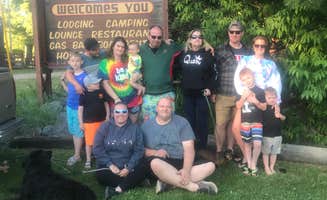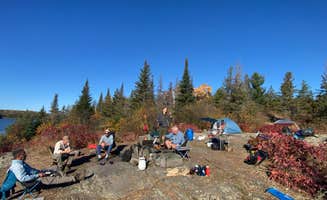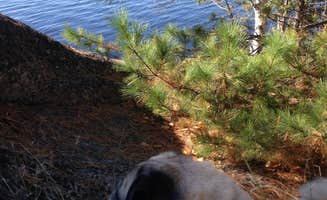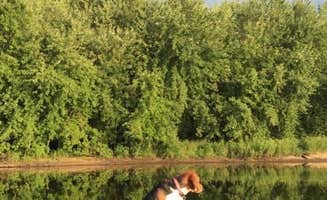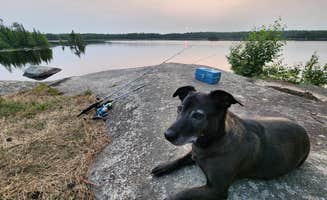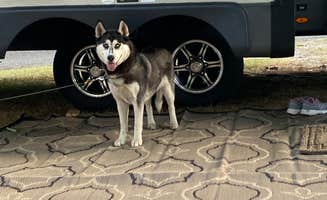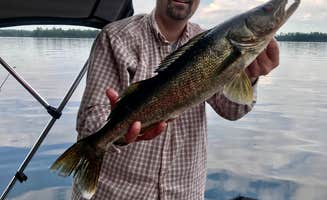Camping near Winton, Minnesota offers access to Superior National Forest's one million acres of wilderness terrain at approximately 1,300-1,700 feet elevation. The area's boreal forest climate features summer temperatures averaging 65-75°F with frequent evening cooling. Winter camping remains available at select sites despite average January temperatures of 0-10°F.
What to do
Underground exploration: Tour the historic Soudan Mine at Lake Vermillion - Soudan Mine State Park, where visitors descend more than 2,000 feet below surface. "Soudan Mine tours were awesome," notes camper Tara M., who found it "within reasonable driving distance to Ely which has the wolf center, shopping, etc."
Island camping: Access remote sites via canoe from Fall Lake. "A friend of ours told us about the island campground here at Fall Lake! You canoe out to your island to camp on and if it doesn't get better then that I don't know lol," writes Anne G. about Fall Lake Campground, adding "we brought a canoe out and spent all day on the lake! I would recommend going to see Kawishiwi Falls nearby!"
Wildlife viewing: Walk observation trails at wolf and bear centers in Ely, 10-15 minutes from most campgrounds. "Don't miss the International Wolf Center, the North American Bear Center and the Dorothy Molter Museum," recommends Nancy W. "All are really interesting and definitely worth the price of admission."
What campers like
Privacy between sites: Most campers appreciate the secluded nature of campsites at Fenske Lake Campground. "The sites looked very spacious and yet still close to the bathrooms and the trails," notes Conor P., who describes the area as "private and secluded." Another camper, Anne G., discovered "a giant rock you could climb out on with a PERFECT view of the lake!"
Clean facilities: Campgrounds maintain above-average cleanliness standards. "The bathrooms and showers (which are free) are some of the cleanest we have found," writes Nancy W. about Fall Lake Campground. "They were cleaned daily and the camp hosts returned many times during the day to check for cleanliness."
Fishing opportunities: Multiple lakes offer excellent fishing access. At Bear Head Lake State Park Campground, "Bass, northerns, walleye, panfish, and trout can be caught," reports a camper who notes "panfish are all over the lake and most likely the first ones biting. Good walleye fishing after 6pm."
What you should know
Weather preparation: Temperature fluctuations occur rapidly, particularly in shoulder seasons. "We pulled into this campground after a long drive in the dark. They allow you to arrive late (no check-in time) and we enjoyed a quick night on our way to the BWCA. The campground was beautiful to wake up to," explains Hatie P. about Fall Lake.
Wildlife management: Bears frequent camping areas, requiring proper food storage. Heather M. at South Kawishiwi River Recreation Area warns about smaller wildlife: "It is overrun with mice during the night. They kept me up getting in and running around. I put traps out during the night and I caught 6!!! I never caught six in one place during one night ever."
Reservation strategy: Secure lakefront sites well in advance during peak season. "It's best to make a reservation especially if you want to try to get a lakeside site, but there are a few first come first serve sites available, which usually are easier to get during the week, they fill up by Friday," advises Gina G.
Tips for camping with families
Cabin options: Several parks offer cabin accommodations for families seeking structured shelter. At Bear Head Lake State Park Campground, "Camper cabins are nice. They have bunk type beds. The beds on bottom are FULL size (can sleep 2 each) and the ones on top are singles. So 6 could sleep here," explains Amy G., who adds they include "a little table, electric heat and a small screened in porch."
Swimming areas: Designated swimming beaches provide safe water access for children. Gina G. notes Silver Rapids Lodge has a "small swimming area and play place for kids" alongside "many amenities."
Climbing opportunities: Natural rock formations offer climbing experiences for children. At Lake Vermillion State Park, campers report site 312E was "by far the best, with an awesome rock structure the kids had a blast climbing on."
Tips from RVers
Electric hookups: Several campgrounds offer electric service without full hookups. "We stayed at site #13 which was an electric site with my RV," reports a camper at South Kawishiwi River, who suggests the park is "nice, and I can see that it is lots of fun when the weather is nice, you can kayak, canoe on the lake."
Dump station access: While onsite dump stations are limited, alternatives exist. "There is a water fill-up station by the camp office and a dump station in town at the Chamber of Commerce," notes Nancy W., adding that "the only thing that could have made our experience better is if there were full hook-ups."
Site selection: Choose gravel sites for RVs and grassy areas for tents. "Campsites are very pretty but sites are mostly gravel not ideal for tents more aimed at the RVs," advises Stephanie K. about Lake Vermillion State Park, suggesting "100-200 campsites seem better for tents over 300 sites. 100-200 have some grassy tent pads with a cool layout."


